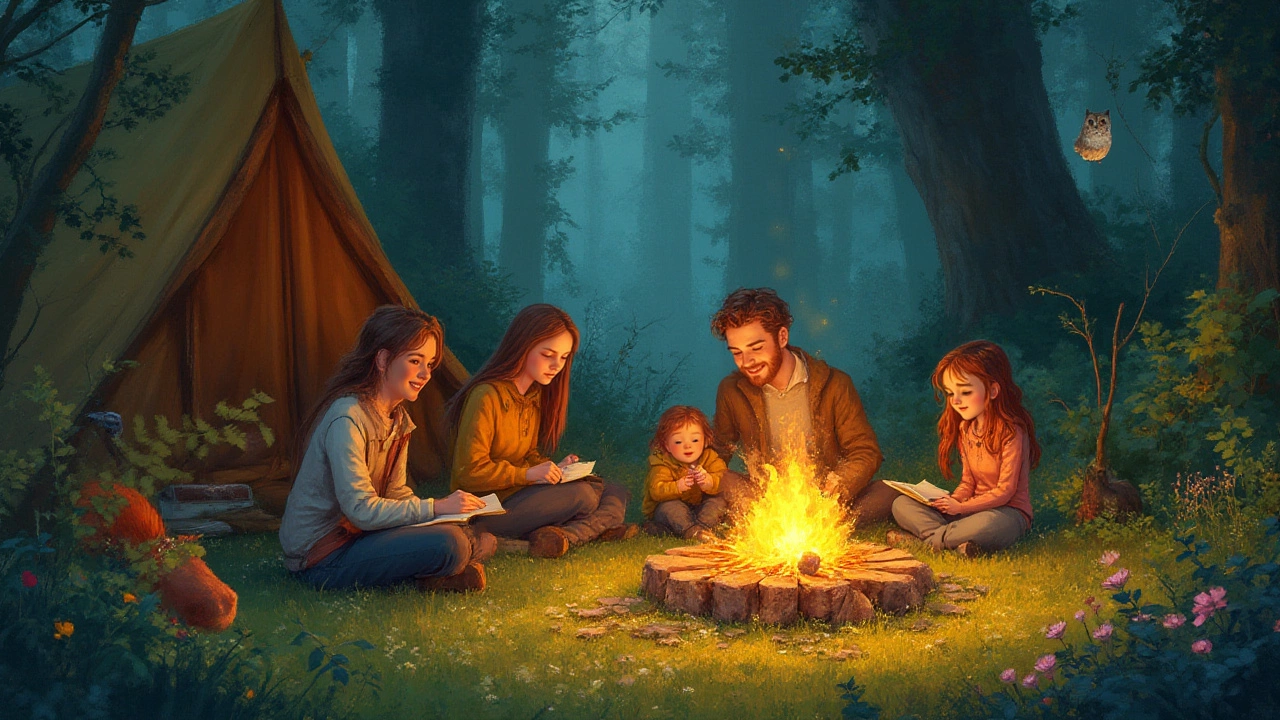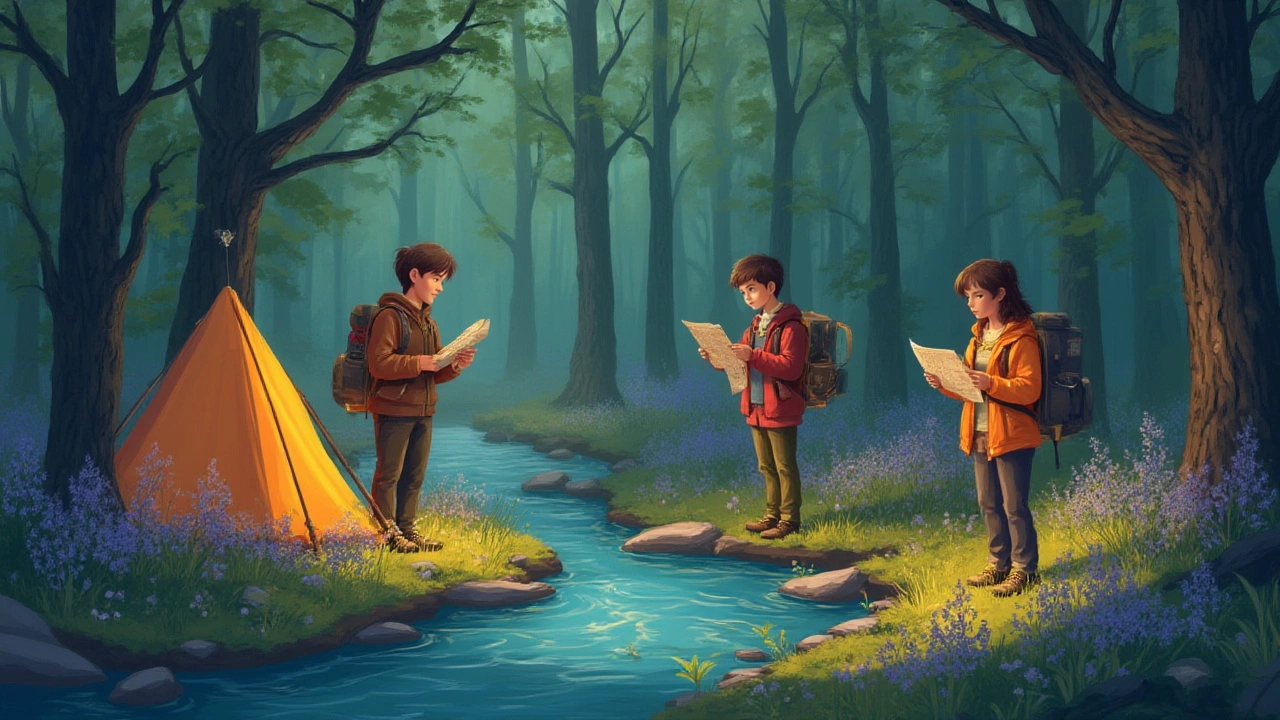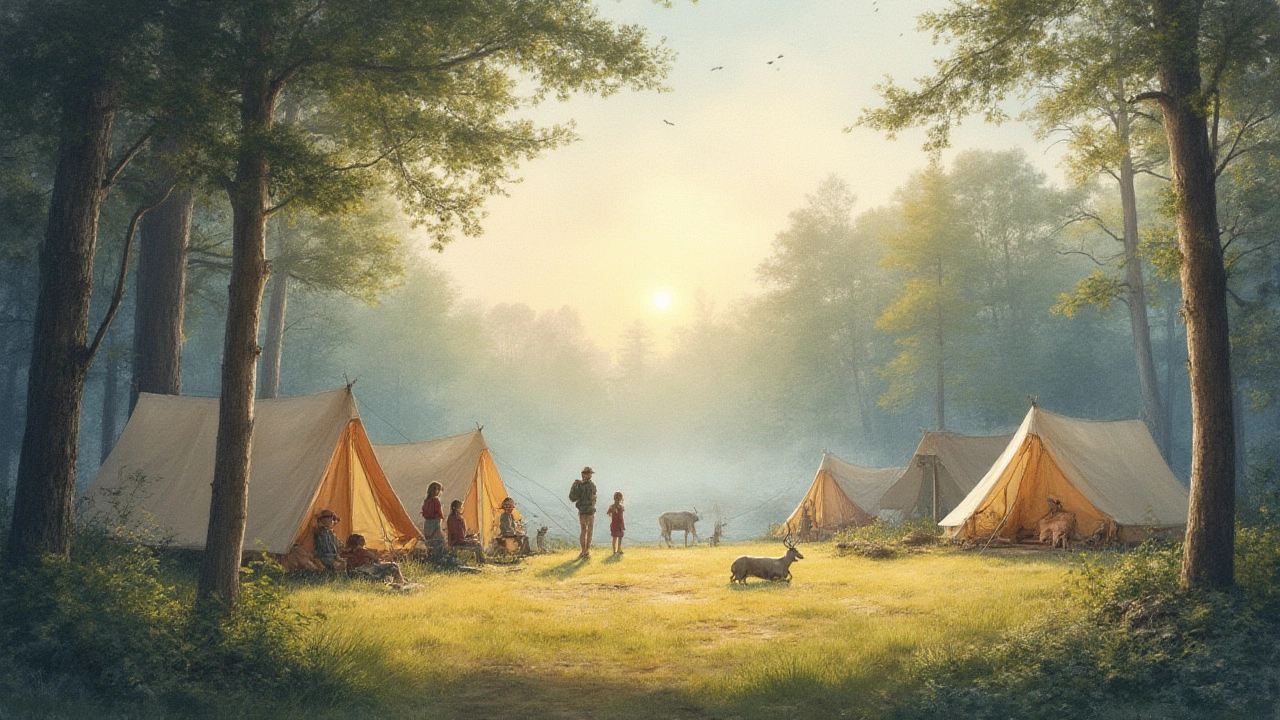Ever wondered why so many people are obsessed with packing up their lives and heading straight for the woods? There’s something magnetic about forests—the air smells cleaner, the sounds are totally different, and you find yourself doing things you’d never bother with at home, like tracking bird calls or staring at the stars for hours. But there’s more behind this urge to camp in the forest than just a trendy photo op. It’s not just you—millions dive into the trees every year, on purpose. And there’s a pretty good reason for that.
The Draw of Forest Camping: More Than Just Trees
At first glance, camping in the forest might sound like something best left for hardcore survivalists or overzealous boy scouts. Trust me, it’s not just about roughing it. For a lot of people, forests awaken something deeply human—a craving for real quiet and wild green space. Studies show that even spending as little as two hours a week in nature improves mood, boosts creativity, and reduces blood pressure. That’s not marketing fluff; in 2019, researchers published a paper in Scientific Reports after investigating 20,000 people in the UK. Their main finding? Two hours is the magic number for feeling physically and mentally refreshed.
So, why the forest, not a city park? Forests offer what psychologists call "soft fascination," meaning there’s always something interesting to gently capture your attention. You watch dappled sunlight shift across mossy logs, listen to the shuffle of leaves underfoot, or catch the sudden flash of a red squirrel’s tail. This natural tapestry lets your mind drift—a perfect break from doomscrolling or worrying about work emails.
Another undisputed perk? Privacy. Unlike beaches or urban campsites, forest campsites usually mean fewer neighbors and quieter surroundings. There’s space to breathe, wander, and have a campfire without someone’s Bluetooth speaker blaring three tents down. Off-grid escapes are booming right now: bookings for remote forest sites in the UK and across Europe surged by more than 60% during 2022, according to Cool Camping’s booking data. Folks are searching for more seclusion and less hassle.
Forest camping isn’t just good for escaping busy life; it’s amazing for your senses. The air feels thicker and cooler, filled with the scent of pine or damp earth. Naturalist Florence Williams wrote extensively about this in her book The Nature Fix, noting that forest air contains phytoncides, natural compounds released by trees that can boost your immune system. Japanese practice “Shinrin-yoku,” or forest bathing, is basically wandering through woods while soaking up all those good smells and sights. It's no pseudoscience: a 2008 study from Nippon Medical School showed folks had lower cortisol (the stress hormone) for days after forest visits.
Of course, the creatures take center stage. In forests, you’re living alongside wildlife—from songbirds to badgers or, if you’re lucky, glimpses of deer. That connection to wildness is powerful. For many, the thrill of spotting a fox by lamplight or hearing tawny owls at midnight sticks longer in the memory than any hotel minibar or five-star meal. In fact, a National Trust UK survey found 84% of respondents who'd tried forest camping said they felt a stronger connection to wildlife and the seasons. No concrete jungle can compare.
So, why are people giving up comfy beds? Because forest camping pulls you out of the everyday—a rare reset button that’s almost impossible to find elsewhere.

Key Facts, Surprising Benefits & Mindset Shifts for Forest Campers
Camping in forests isn’t just a quirky weekend pastime; it’s science-backed therapy. But beyond the research, what exactly sets it apart and makes it something folks come back to year after year?
For starters, forest camping is proven to aid sleep quality. One University of Colorado Boulder study discovered campers’ circadian rhythms—basically, their natural internal clocks—re-synced with sunrise and sunset in just a couple of nights camping in nature. No blackout curtains needed. Campers woke up feeling rested, even with birds or wind as an alarm clock. If insomnia haunts you back at home, trading four walls for a canvas tent might help.
There’s also the impact on focus and memory. A 2020 experiment led by the University of Michigan had participants walk through an arboretum versus a city street. Those who strolled among the trees scored 20% higher on memory and attention tests—without touching a caffeine drip or booking a therapist.
Social connections deepen in the woods. Forget awkward small talk over dinner tables; forest camping brings out true personalities. Friends and families bond as they figure out how to build a fire, set up camp, or share stories by flashlight. And here’s something else: a survey by the Camping and Caravanning Club revealed over half of UK campers reported better communication with their travel buddies after a single weekend in the forest, compared to home life.
Physical health gets a big boost, too. Even moderate activity—walking trails, collecting firewood, setting up tents—counts toward your daily step goal. Data from Ordnance Survey shows the average camper clocks over 11,000 steps a day during forest getaways.
Let’s talk gear, too. You don’t need fancy kit to camp in a forest, but there are essentials that can make or break your trip. Smart prep means better comfort and safety:
- Invest in a good sleeping mat—pine needles are not as comfy as childhood fairy tales make them sound.
- Bring layers, because woodland temperatures dip sharply after sundown, even in July.
- Carry a headlamp—hands-free light beats managing a torch while cooking or finding your way to the loo.
- Use a map or download offline navigation apps; phone signals vanish fast between thick tree trunks.
- A simple tarp can save your tent from surprise rain or create extra hangout space.
If you’re worried about bugs, remember that not all insects are out to get you. Mosquitoes are less common in pine or spruce forests compared to marshy lands. Campfire smoke also helps keep them at bay—an old but effective hack.
Forest camping changes how people see time. Days feel longer without constant notifications, and it’s common for campers to realize just how much of their regular life gets lost to screens. The “nature effect” is real—you start noticing minute things like the taste of camp-cooked food or how the breeze sounds just before dusk.
This shift toward simplicity is as much mental as physical. Ask any regular forest camper and they'll tell you: fewer distractions make you notice yourself and your companions more honestly. Many people return home feeling both tired and strangely energized, eager to book the next trip.
One quick peek at the raw data shows how forest camping is trending:
| Year | Forest Camping Bookings (UK) | Wildlife Sightings Reported |
|---|---|---|
| 2021 | 83,000 | 21,500 |
| 2022 | 134,000 | 38,700 |
| 2023 | 165,000 | 41,800 |
| 2024 | 179,500 | 49,100 |
This upward curve shouts loud and clear—more people are discovering the rewards of unplugging under a forest canopy.

Practical Tips and Future Trends in Forest Camping
The best trips start before you even pack your bag. Forest camping success depends on smart planning and keeping a flexible attitude. Choosing your site is number one: look for campsites that encourage a close-to-nature experience, but don’t skimp on basic safety. UK options like Forestry England-run sites or private eco-camps are often set up with low-impact rules to keep the woodland wild and healthy for everyone.
Before you travel, always check for campfire policies. Many forest sites now have strict fire bans over summer because of rising wildfires. Instead, bring a portable gas stove for cooking and a lantern for that cozy glow at night. If fires are allowed, use pre-built rings and never leave flames unattended.
Packing the right clothing is your insurance against cold or soggy misery. Waterproof boots and a quick-dry jacket make all the difference. Layering is key: think T-shirts and fleeces, not bulky coats. For the British weather, assume it’ll rain even if the forecast promises wall-to-wall sun.
Food in the forest tastes way better than at home—simple is best. Oats with berries, one-pot pastas, or grilled halloumi always hit the spot. Avoid snacks that attract wildlife, and always stash food in sealed containers. Rubbish goes straight out with you. Wild animals, especially foxes and badgers, will sniff out leftover burgers from football pitches away.
- Stash a basic first aid kit—forest accidents are rare, but a cut finger or blister happens to everyone.
- Know the basics of tick prevention: long trousers tucked into socks, and check skin at night, especially after walks through bracken or tall grass.
- Leave no trace. The classic seven principles are worth revisiting: plan ahead, travel and camp on durable ground, pack out what you carry in, minimize campfire impacts, respect animals, be considerate of other visitors, and leave what you find.
One trend gaining steam is the “microadventure”—short but punchy forest overnighters that don’t require days off work or mega budgets. A Friday-Saturday escape can recharge you just as well as a week-long hike. Some campers are using hammock tents instead of traditional ones, which means you’re off the wet ground and rocked to sleep by the breeze instead.
Tech isn’t evil in the woods, if you use it smartly. Solar-powered chargers keep essentials running for emergencies, and wildlife identification apps turn a bird song into a teachable moment. But the real magic comes out when you switch off—literally.
Campers today are also paying closer attention to how they leave forests. With 23 million day-trippers using UK woodlands in 2024, pressure is on for everyone to tread lightly. Some savvy campers join in on woodland conservation days, combining their trip with tree planting or litter clearing. Shared stewardship brings a deeper reward than any marshmallow on a stick.
Once you’ve tasted a forest morning—when sunlight streams through dew-tipped branches and breakfast is shared with nothing but robins for company—it gets into your bones. You’ll know why people keep coming back, again and again, for that rare feeling you can’t fake: real peace, wild and simple, right where the world still feels whole.
